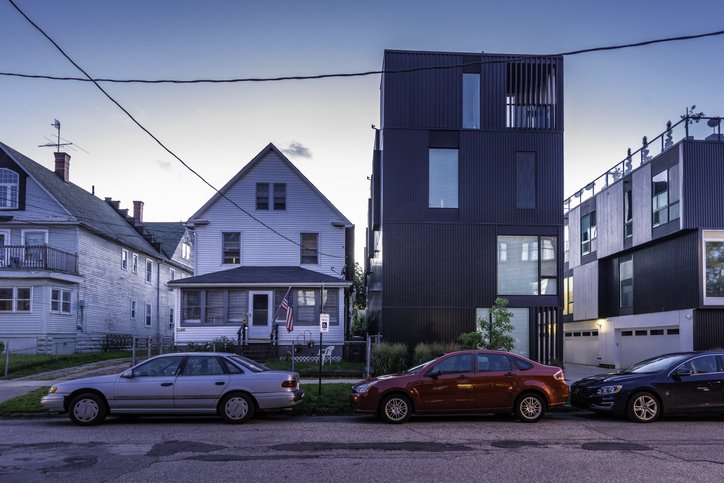
I had the deep pleasure of being in Montana for vacation recently. It’s absolutely spectacular. Every human is different, but I have difficulty imagining anyone unimpressed while surrounded by endless mountains and towering trees and crystal-clear bodies of water, decorated with rocks that are every color of the rainbow.
I cannot envision someone looking around at such splendor and thinking it lackluster or commonplace, yet for those less inclined to wander the woods, so to speak, there is still fun to be had. Fly fishing and rafting, zip lining, and the most delicious food. (No, I’m not a tourism director for Montana . . . I suppose I could be, but that’s not my intention!)
While in Montana, I found myself out to dinner with a friend one evening. I am going to leave the name of the establishment out of this piece to respect the identity of the individual I met. This is sad in a way, because the restaurant was fantastic. That said, most of the dining establishments in Whitefish, Montana, seemed to be or have all of these elements: delicious, fresh food, nice ambiance, and the loveliest humans as staff.
As I am apt to do while out, I engaged in conversation with Kristin, a young woman who was our waitress that evening. I was a waitress for many years and so, I will take a moment to remind everyone that waitstaff are humans. Not everyone is going to have the time or inclination or personality to be chatty, but I think it’s rather nice to recognize their humanness and not treat waitstaff like mechanized help.
Anyway, after some basic back and forth, I asked Kristin about the real estate market in Whitefish. I was astounded to see that in a state where the current minimum wage is $8.75, most homes for sale were priced at $700,000 and higher. I can save a dollar as much as the next person, but something wasn’t adding up for me, and I was curious as to whether a local could shed some light.
Kristin advised that during COVID, corporations and high net-worth individuals had moved to Montana and purchased real estate and properties, wildly inflating the average prices. She further shared that she and her husband had to move out of town because they could no longer afford to live or shop in Whitefish. Kristin mourned the loss of the community that once existed in Whitefish. She said that when she first moved there from Idaho, she felt comforted by the strong sense of “know your neighbor” that existed, rather naturally. She said that everyone just sort of knew everyone . . . and once the shift began to occur during COVID and everyone vacated, that also disappeared. I understood this; it becomes more and more challenging to maintain a sense of closeness as folks disperse.
As I listened to Kristin, it was obvious to me that she and her husband and their neighbors were collateral damage in the process of gentrification. People and organizations with money moved in, new housing was built and existing housing prices rose, a Starbucks or two were sprinkled around the highways, and longtime inhabitants were forced out, as they could no longer afford to live in the area.
I attended college in Washington, D.C., and I’m a New Yorker through and through, so I am patently and brutally aware of the human costs related to gentrification. Sure, many appreciated the ways southeast D.C. “cleaned up” . . . yet it came at the cost of its residents being pushed out. I’ve seen several areas of Brooklyn and the Bronx and Manhattan transform, almost overnight. And if we are being completely honest, I spent a shockingly inadequate amount of time concerned for the human beings who grew up and worked and lived in those areas. I rarely took the time to ask myself where they would live and work and raise their families.
I love my town and my little apartment. I love my local coffee shop and the grocer where I can pick up fresh fruit for the day. The gentleman who owns Miller’s, a local hardware store, may charge 25 cents more for an item, but he actually knows what he’s talking about, and even took the time to walk me through a home repair on the phone once.
I am so very lucky that I have been able to receive a good education and get myself a decent job and afford this life I lead. I am so busy living that life, that I rarely take the time to imagine what it would be like if my neighborhood were overrun with individuals who wanted bigger and better and more.
The very next day, after this thought-provoking meal in Whitefish, I found myself at the National Bison Range. If you’ve never seen a herd of bison live, let me assure you that they are massive and majestic creatures. While buying tickets to enable me to drive around the range, I glanced around at the information that was presented, in story form, on the walls around me at the visitors center. I didn’t have much time, so I decided to do a little research to expand my knowledge once I was back at my hotel.
I learned: In 1908, the National Bison Range was established in the middle of the Flathead Indian Reservation, without tribal consent. It wasn’t until 2020 that the Confederated Salish and Kootenai Tribes (“CSKT”) were given back management of this land, after nearly 20 years of negotiation[2].
Although there is a positive result in that story, there is much to lament.
Why am I sharing both of these stories here? Gentrification is a different concept than unjust territory or land claims, but there is a common thread here — a notion or idea that is the very underpinning of inequity and discrimination in this country, and more accurately, all over the world.
Whether the issue is socioeconomic status, ethnicity, skin color, sexuality, or religion, our society is plagued with the devastating notion that there exists a justifiable divide between the “haves” and the “have-nots.” This divide feeds feelings of superiority and supremacy and justifies behavior such as displacement, disrespect, and outright thievery.
Many of us, particularly those with more access to opportunities, skillfully distance ourselves from issues plaguing society with the reassurance that the thing, whatever that may be, will never happen to us. As I admitted earlier, I have been as guilty of this as the next person. We may shake our heads while in polite company and disparage actions, but fail to raise our voices in solidarity or take action ourselves, because we have committed to a false sense of comfort and security.
Kristin was warm and intelligent and a delight to speak with. I wonder if she celebrated with the CSKT when they finally won back management of their own land, after an irrationally protracted battle. I wonder if the CSKT is tuned into displacement of the hard-working and kind people who once resided in Whitefish. I wonder how we can all tune into injustices playing out in our communities, and together support a more just outcome for those most impacted.
This is not an essay grounded in hopelessness or intended to spotlight the depths of humans’ depravity. Rather, I think there’s a common ground that needs to be acknowledged more often. It behooves all of us to analyze the ways in which power is claimed, and how that dynamic is simultaneously sustained by and feeds discrimination and racism.
Isn’t it high time that we divest from the narrative that money and a sense of dominance should allow some the opportunity to take land and livelihood from other humans, without a care about where they will go and how they will live?
I don’t believe in the cessation of growth or progress, but I think that it’s critical that we consider all of this in the context of who is impacted and what that means for all of us. Because, it does mean something — for all of us.


















